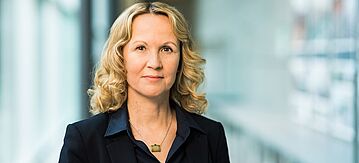– Check against delivery –
Gillord Pisas,
Marco Voigt,
Nico Rosberg,
Ladies and gentlemen,
It gives me great pleasure to open the GREENTECH Festival 2024 with you. Over the next three days you will be
- showcasing ideas and innovations for a better future
- helping overcome fear of change
- and together finding ways out of the climate crisis.
The GREENTECH Festival brings together people, organisations and companies from all over the world and from an incredibly wide range of sectors.
I think this is an excellent approach. With a positive vision for the future we can master the major challenges we are facing.
It is not enough to only warn about the impacts of the climate crisis. Sometimes it is even counterproductive. It is now a commonly known fact that climate change, if left unchecked, will destroy our natural foundations of life. For this reason, I am happy that your festival focuses on the opportunities that the necessary transformation offers.
I would like to talk today about an aspect that deserves greater attention – the close link between raw material consumption and climate change mitigation. Today, around half of global greenhouse gas emissions and 90 percent of biodiversity loss are caused by the extraction and processing of raw materials – in other words coal, oil, gas, biomass, ores and minerals.
Pollution and water scarcity add to the problem. And we are still very dependent on politically unstable or authoritarian states.
This is not a sound basis for the future.
The German government believes that circular economy has a key role to play in climate action and resource conservation. We have set ourselves the goal of massively reducing the use of new raw materials and tapping the potential of circular economy in terms of climate action. In particular, this means we have to establish and close material cycles.
We want to create the framework for this with a National Circular Economy Strategy. The Federal Environment Ministry had lead responsibility for drawing up this strategy. We are now coordinating it with the other ministries in the German government.
Stakeholders were involved from
- industry
- business and environmental associations
- our federal states
- and the scientific community, trade unions and civil society.
This reflects the importance of swarm intelligence in this process.
Circular economy is much more than preventing and recovering waste. It is about making sure waste isn’t generated in the first place.
From design to production methods and the selection of materials, the entire life cycle of materials and products is taken into account. Raw materials that are already in the cycle have to be used a second, third and fourth time as secondary raw materials. This ensures material cycles are closed. The strategy focuses on legislative proposals, digital technologies and support programmes, but of course also on research, training, public procurement and knowledge transfer.
We need innovation and ideas in these areas across the entire life cycle. I am certain that this festival is the right platform. This is reflected by the many successful companies presenting their ideas here – whether in the panels or as part of the exhibition. They prove that good economic development and climate action can go hand in hand.
I am pleased that I will be able to look around the festival and talk to some of you shortly.
The future offers a wealth of opportunities to overcome the current crises. Striving for a good future for us and our children is what makes all the hard work worthwhile. I wish you and the entire festival every success.
Thank you.

